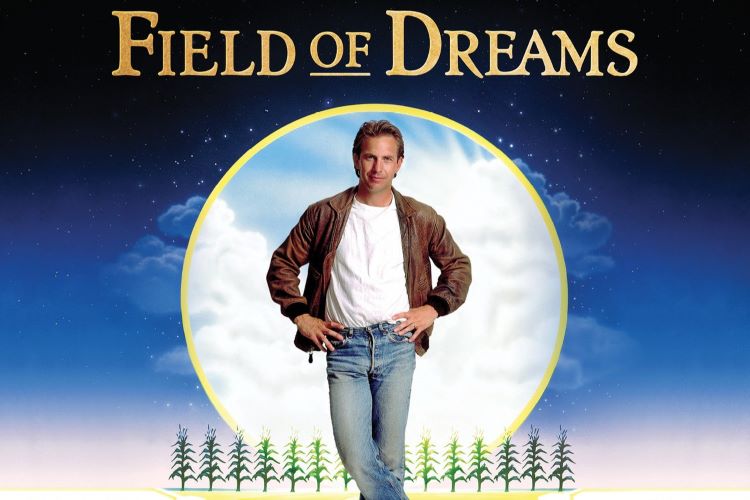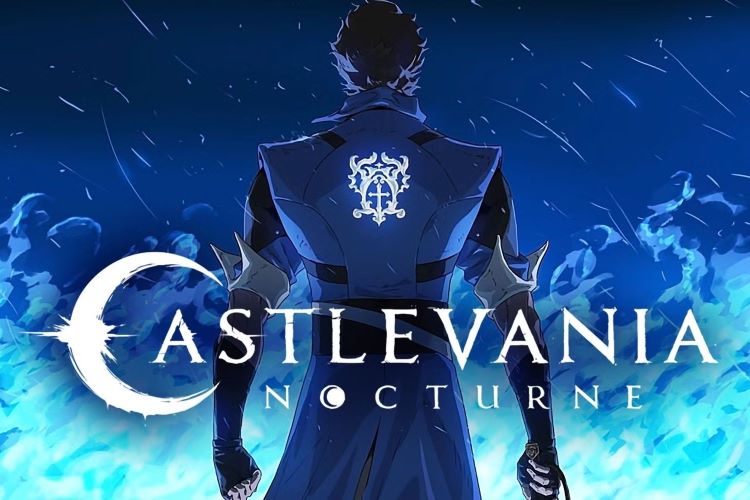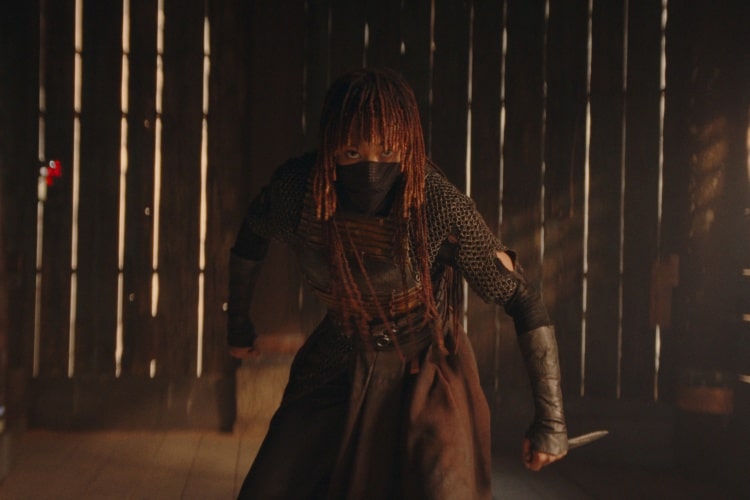Were It Only A Field Of Reality
Cast: Kevin Costner, Amy Madigan, Gaby Hoffman, Ray Liotta
Director: Phil Alden Robinson
Every man can write one great story about his relationship with his father. Field of Dreams is William Kinsella’s story, wrapped by director Phil Alden Robinson in a gauzy haze of Frank Capra sentiment.
Our home has a spring ritual featuring at least one viewing of Field of Dreams as the movie’s baseball theme begins bursting into the national consciousness again. Spring warming encourages us to look at the surrounding greenery starting its growth outside and marvel in its rebirth.
Field of Dreams’ Message
Rebirth is really Field of Dreams’ theme. Heroic Roy is a well-centered father and husband who has literally returned to the roots of the earth and become a farmer, despite no agricultural background. An incomplete past calls to him in the guise of a disembodied voice as Roy reaches his early middle age.
The compulsion is strong enough for Roy to begin behaving in a way that leads his family to financial ruin and community ridicule. Wife Annie remains steadfast and daughter Karin, raised in a Rockwell farm fantasy, implicity trusts every action her parents take.
Watching Roy, viewers know that his behavior is right. The script, punched up by Robinson from Kinsella’s original novel, is the critical component of the movie’s success. Robinson sends the family, also named Kinsella, to a point where they convince the audience that miracles exist and a good person’s deeds are rewarded.
If you haven’t seen the movie, there will be no spoilers here. Ignore the catchphrase, “If you build it, he will come” and focus on the message. Rebirth is possible, but painful. One may not know the future; indeed, for a complete rebirth, one probably should not know, but instead purge themselves by rebuilding each layer of their spirit.
Ray Kinsella’s journey is an intense, rewarding ride.
The Environment Outside The Field of Dreams
Field of Dreams was released in 1989, an extraordinarily good year for American cinema. The Academy Awar competition was fierce enough to block any awards despite three nominations. At every award, the competition included brilliant films with similarly compelling stories: My Left Foot, Driving Miss Daisy, Glory, Born on the Fourth of July, and Dead Poets Society. There weren’t enough awards for Daniel Day Lewis, Denzel, Tom Cruise at peak dramatic performance, Robin Williams, and Morgan Freeman. Kinsella and Robinson each deserved a nomination for this beautiful story, and James Earl Jones and Amy Madigan would have been competitive for supporting actor statues in most years for their roles as a J.D. Salinger-like spiritual mentor and the unflappable wife.
Kevin Costner, in the second of his baseball movies, is solid as Ray Kinsella. The smugness that marred many of Costner’s later work is missing. His Roy Kinsella is vulnerable and enthusiastic.
Amy Madigan, a terrific, underrated actress may be known more for her marriage to actor Ed Harris. Overlooking her performance as Annie Kinsella, a woman rooted alternately in Midwest farm tradition and the Flower Child 1960s, is a mistake. Annie is this family’s rock, calculating bills and counting the days to foreclosure. Standing by her man, but never subservient, she becomes an equal partner in the Kinsella dream, willing to risk her way of life for the passion only felt initially by her husband.
James Earl Jones joins the couple as Terrence Mann, one of my all-time favorite roles. This character is actually J.D. Salinger in the novel, but the reclusive author was reportedly so upset by his appearance that a new character was created for the film. Given Jones’ race, a hint of Ralph Ellison peeks through his performance. The switch fits even better since Ellison wrote more about that generation’s turmoil. Terrence Mann lends an air of authenticity to the film, allowing it to remain grounded near reality yet allowing the fantasy elements room to breathe.
Other cast members turn in great performances, most notably Burt Lancaster as Moonlight Graham. His touching scene near the movie’s conclusion is one that continue to induce tears even after multiple viewings. This would become Lancaster’s last major film role before his death in 1994.
“Son, if I’d only gotten to be a doctor for five minutes… now that would have been a tragedy,” says Graham near the film’s end, deftly sliding the characters to reality.
Ray Liotta is also stalwart as a baseball and he deserves credit for shading his larger-than-life character with enough humanity to make a gorgeous performance.
I Don’t Like Baseball So I Ain’t Watching It
After giving Field of Dreams a try, you just might like baseball. Not the kind played by millionaires in stadiums, but the game itself. No knowledge of the game is necessary to be swept away as Mann reminds Kinsella in a delightful soliloquy.
“The one constant through all the years, Ray, has been baseball. America has rolled by like an army of steamrollers. It’s been erased like a blackboard, rebuilt, and erased again. But baseball has marked the time. This field, this game, is a part of our past, Ray. It reminds us of all that once was good, and that could be again.”
He’s right; baseball’s stories and their place in the American psyche remains strong despite their decreasing market shares. That may not be as true in future generations, but for now, the pastoral game is still a part of the nation’s landscape.
Field of Dreams speaks more to seeking an inner peace that comes from doing what is fundamentally right for yourself and your loved ones, not of batters and balls. Baseball is merely the setting for this story, which is one that employs enough comedy, poignancy, fantasy and suspense to engage our emotions.
I won’t end with a baseball pun, which no doubt causes ecstasy for those who have read my previous work. I’ll simply end by saying this is one of the best films I have ever seen, and it holds a high place in my family’s lineup of special films. If you haven’t seen it yet, do yourself a favor and do so soon.





Leave a Reply